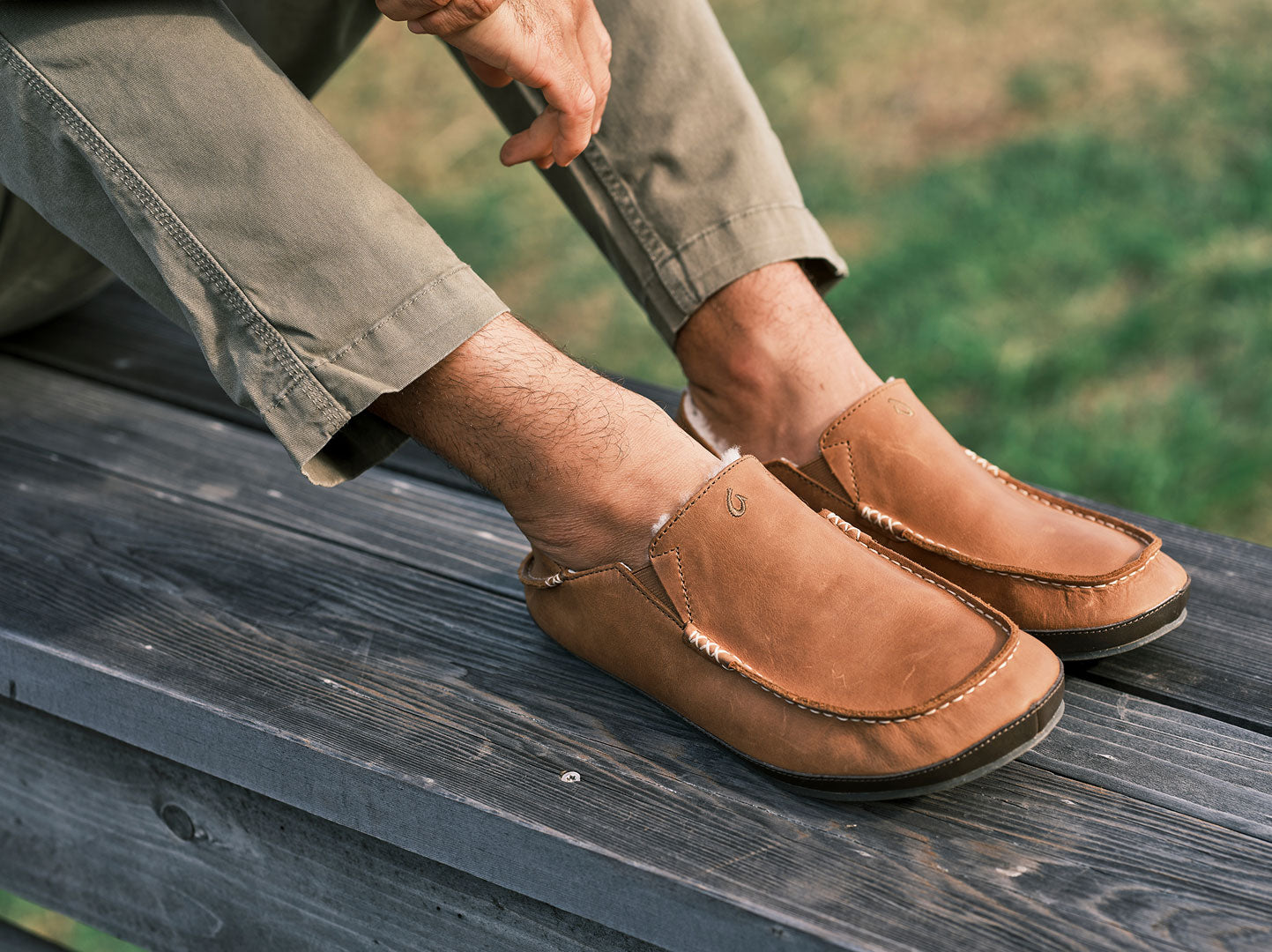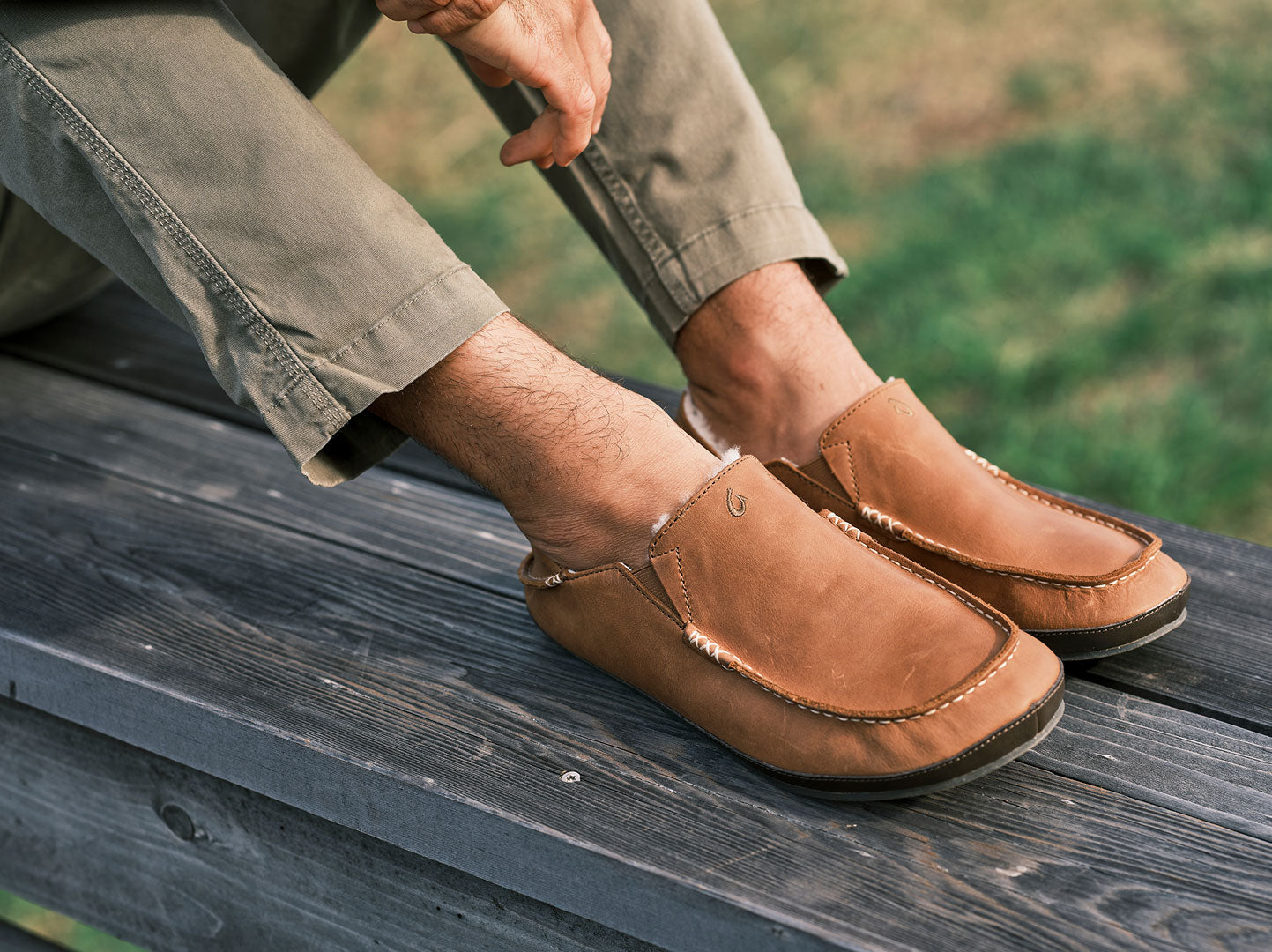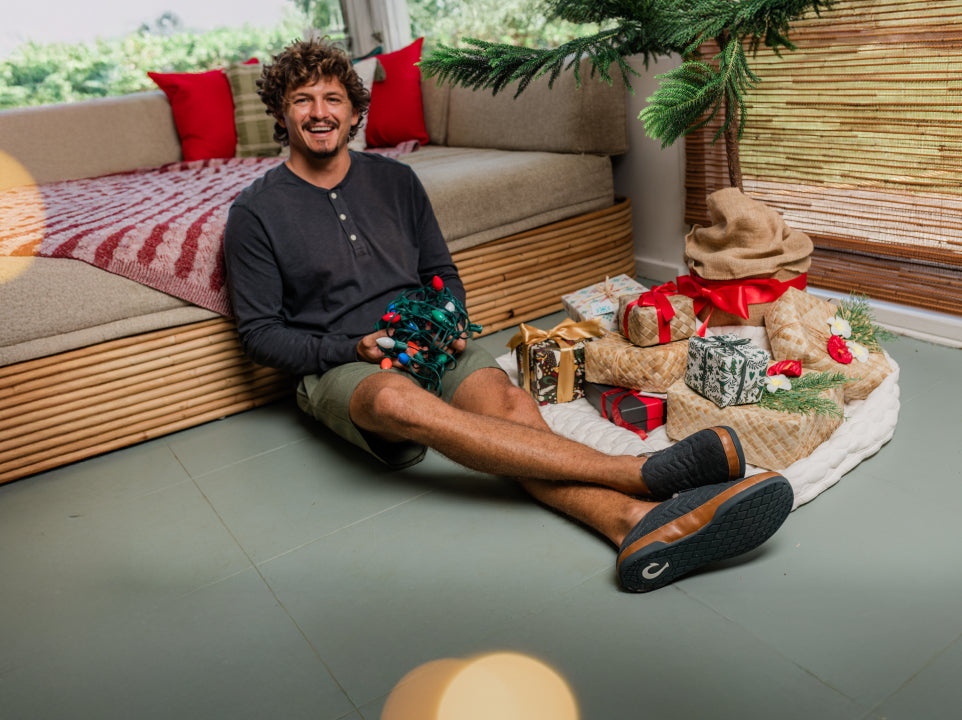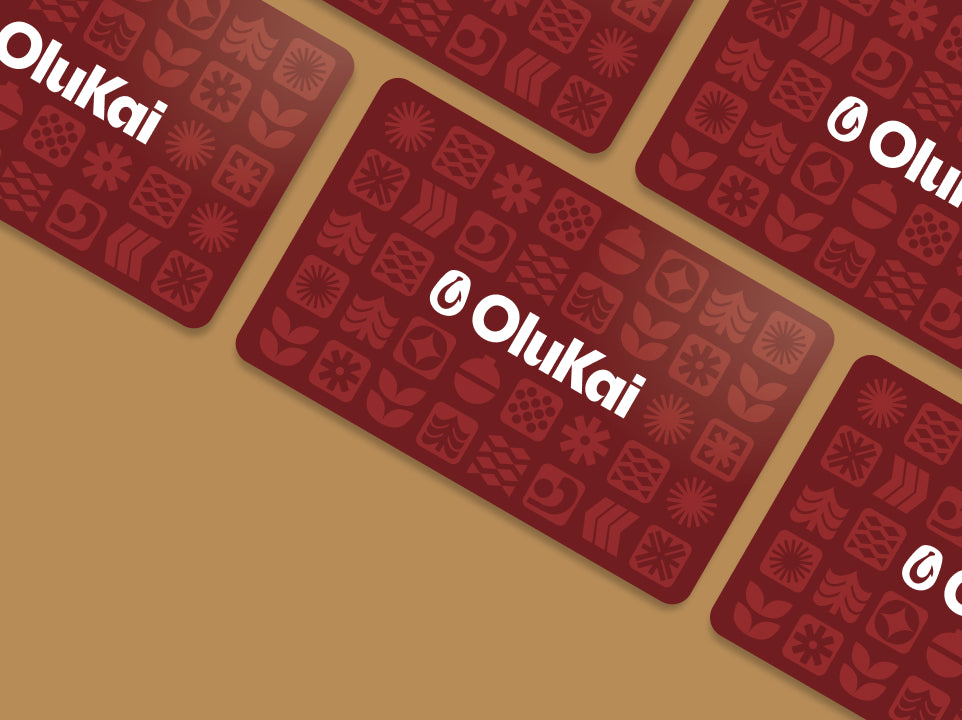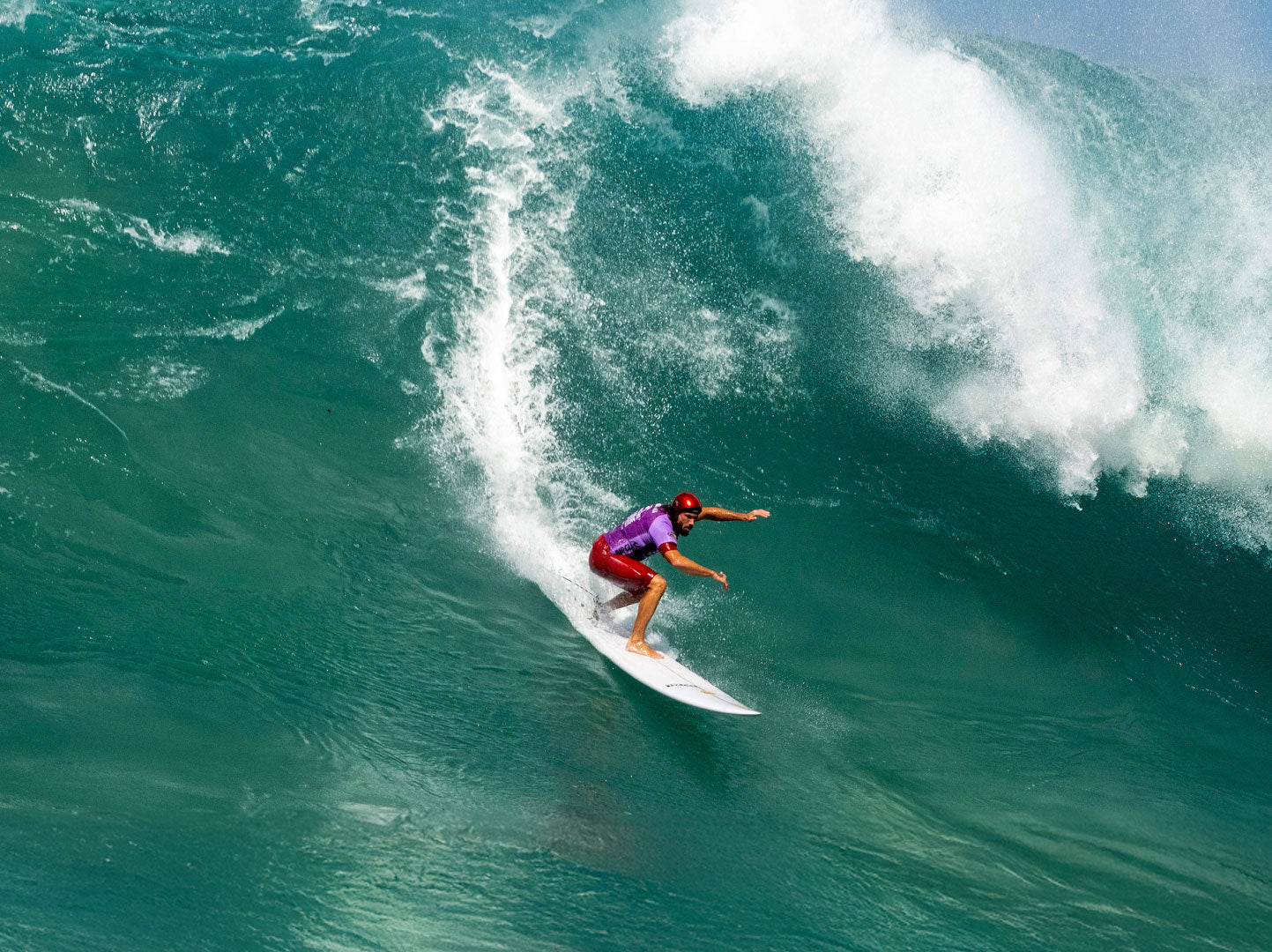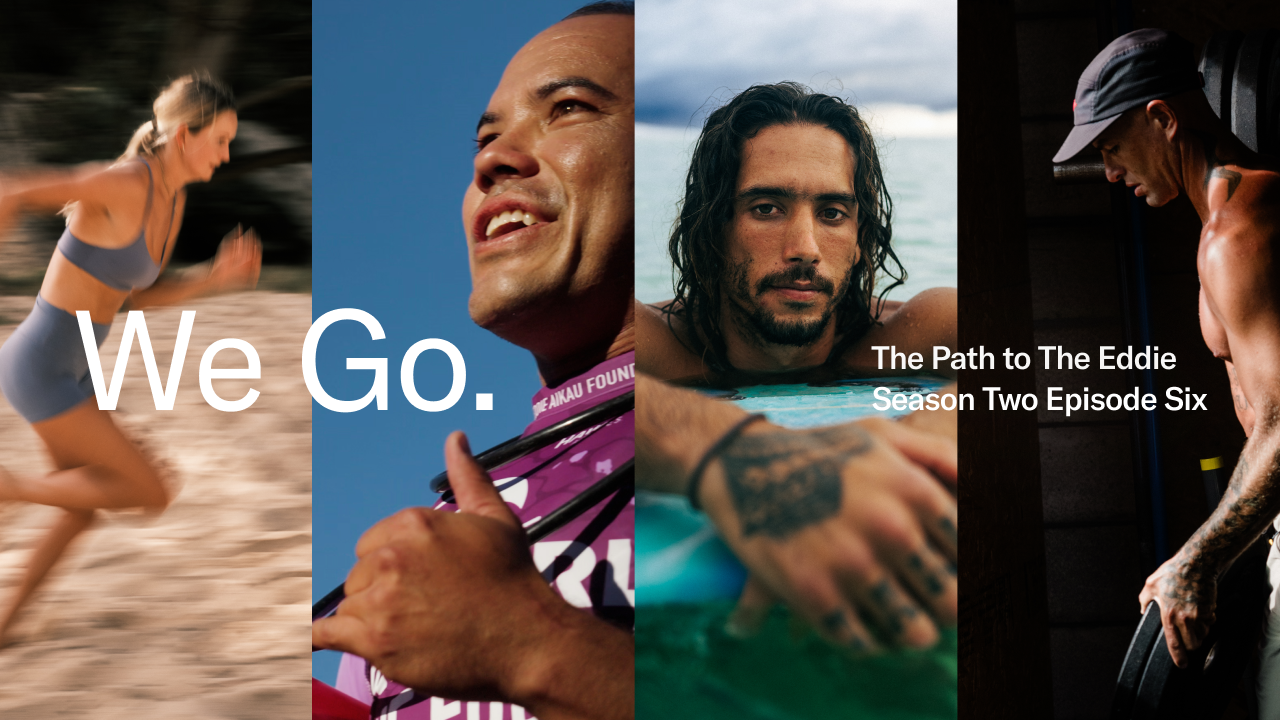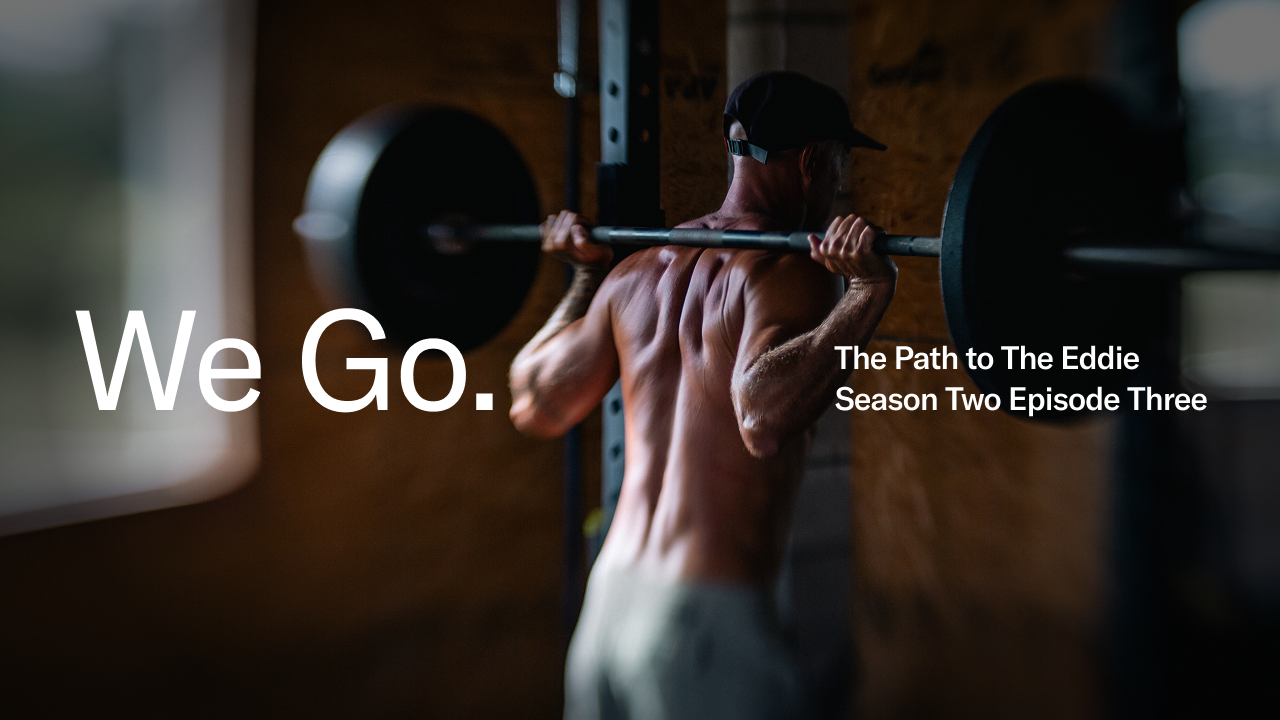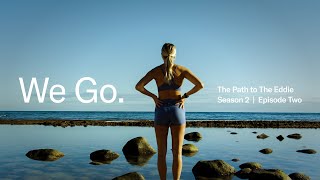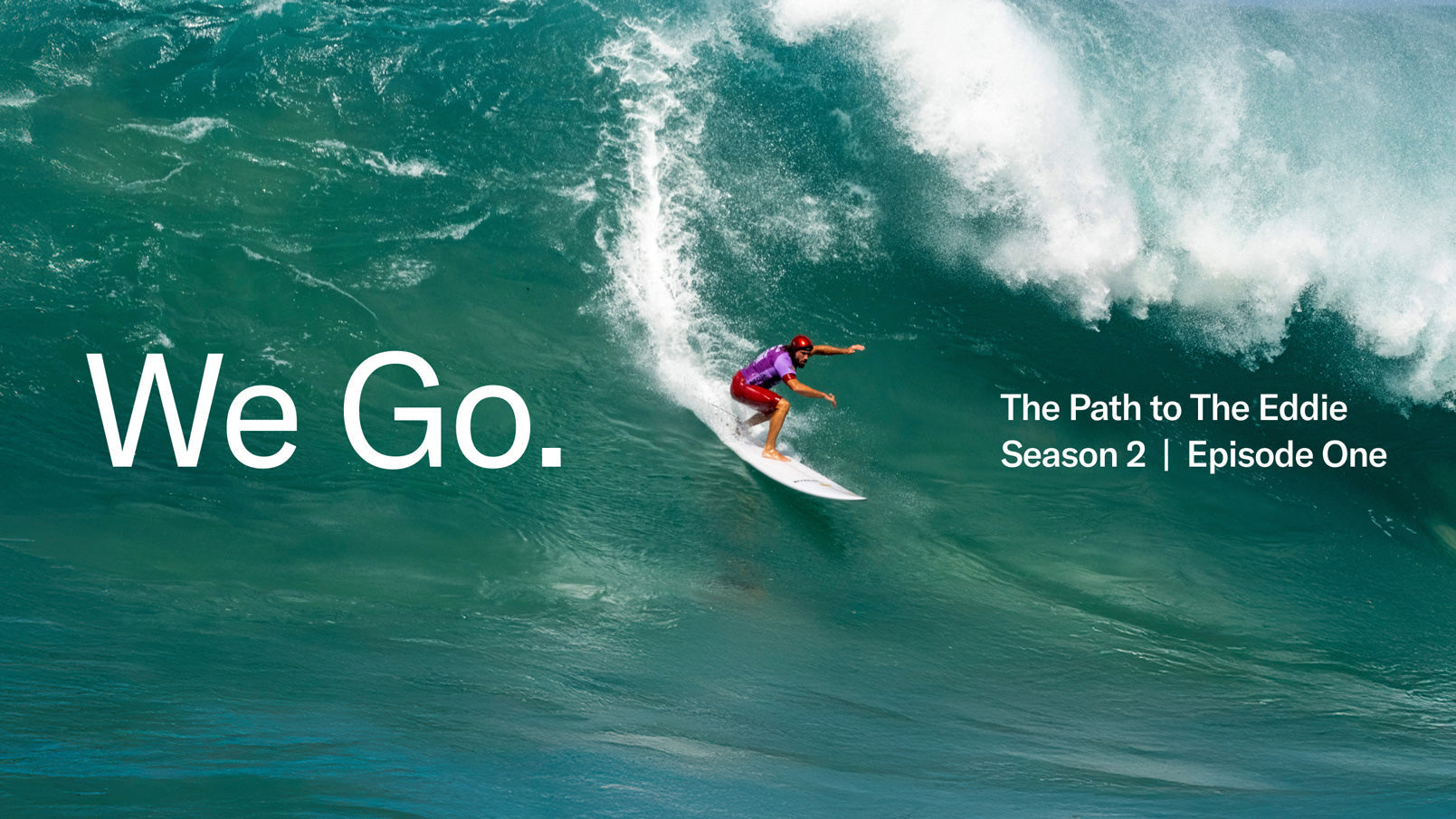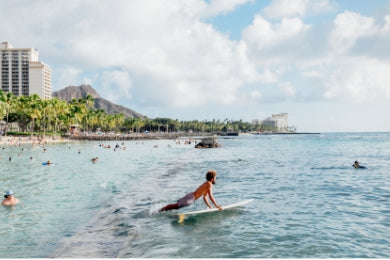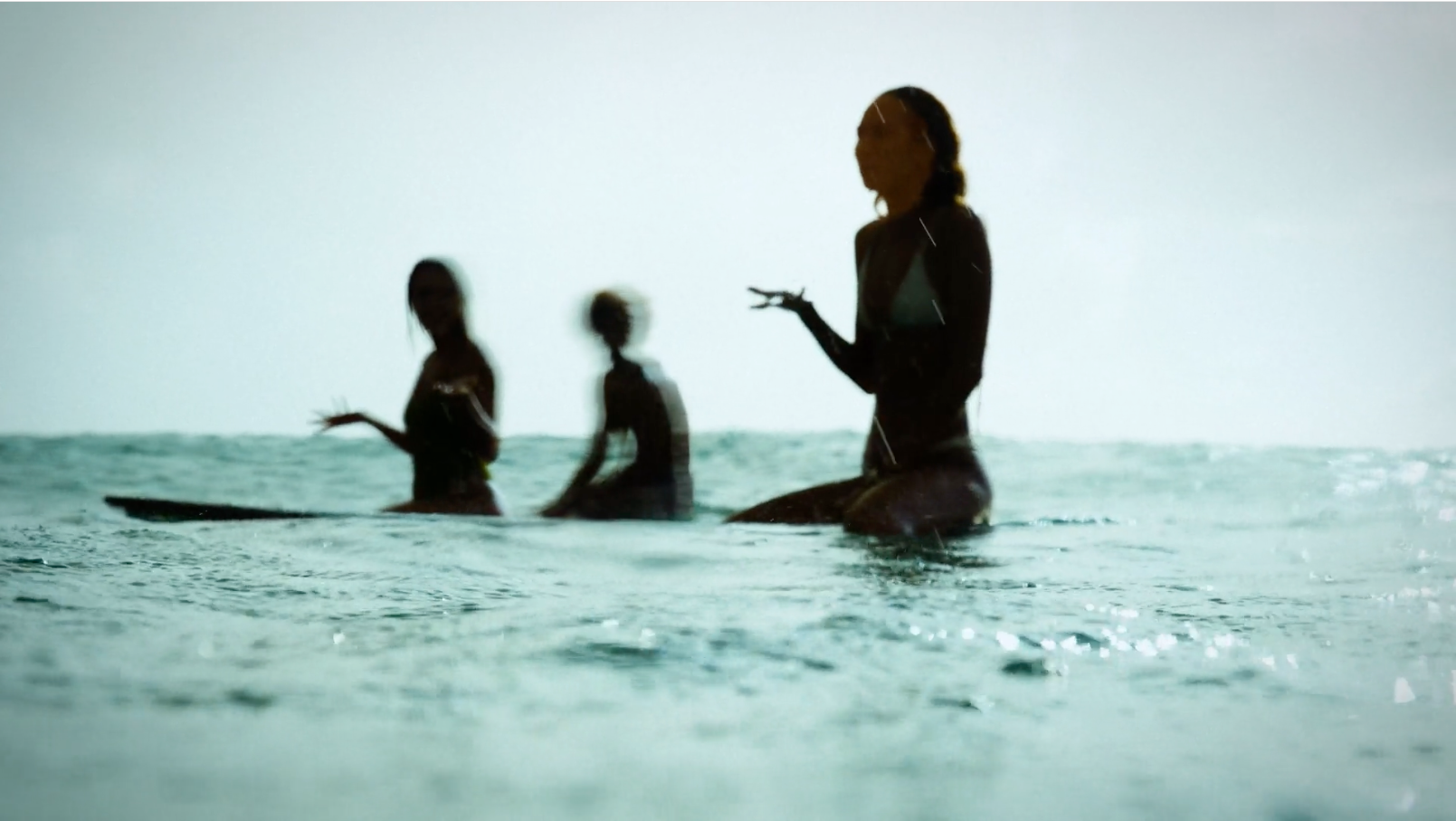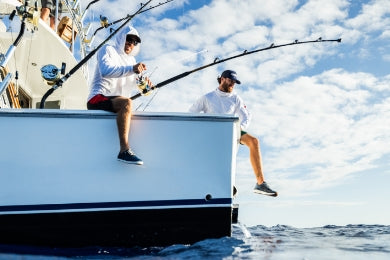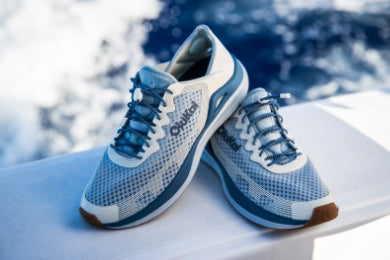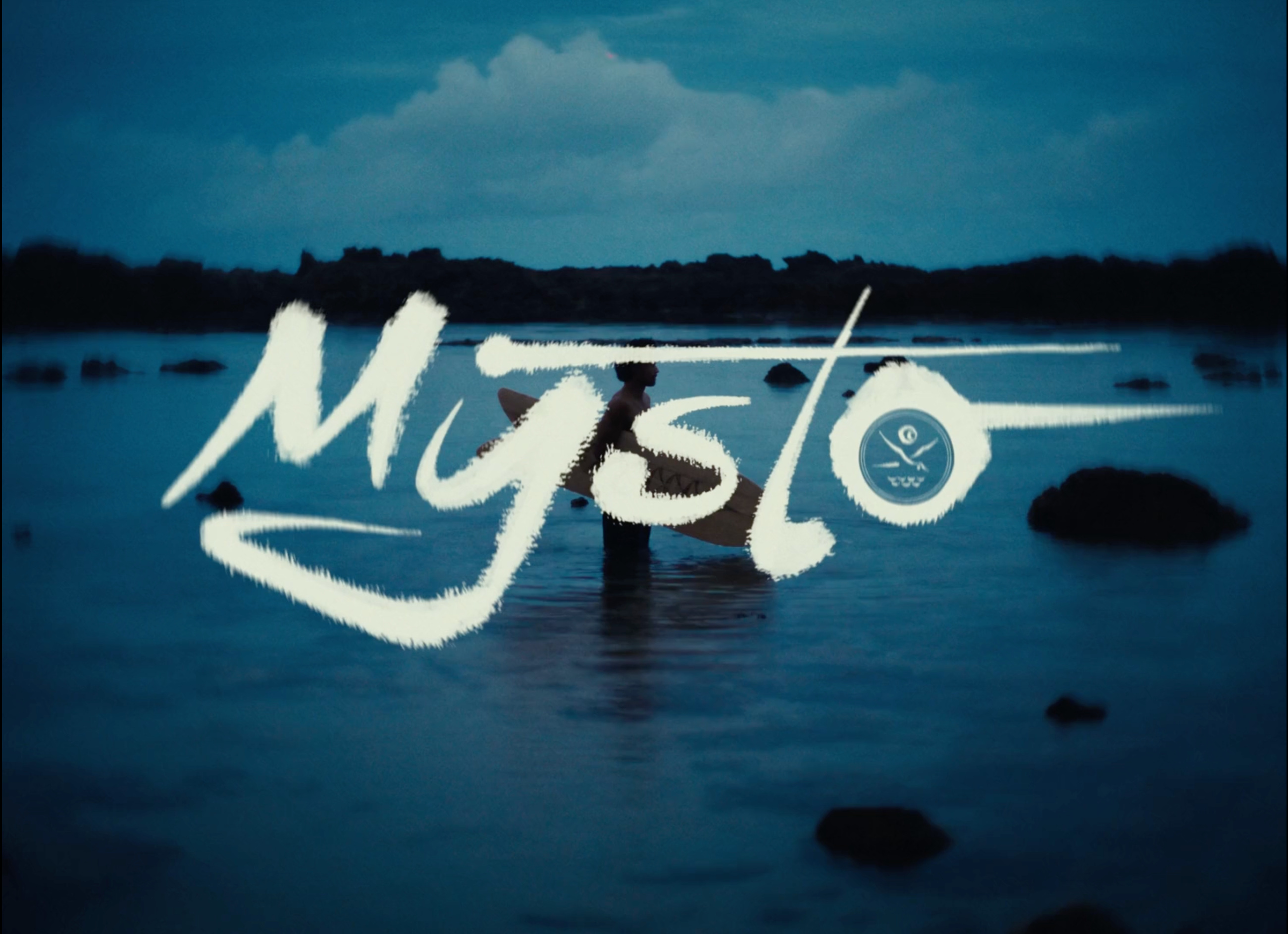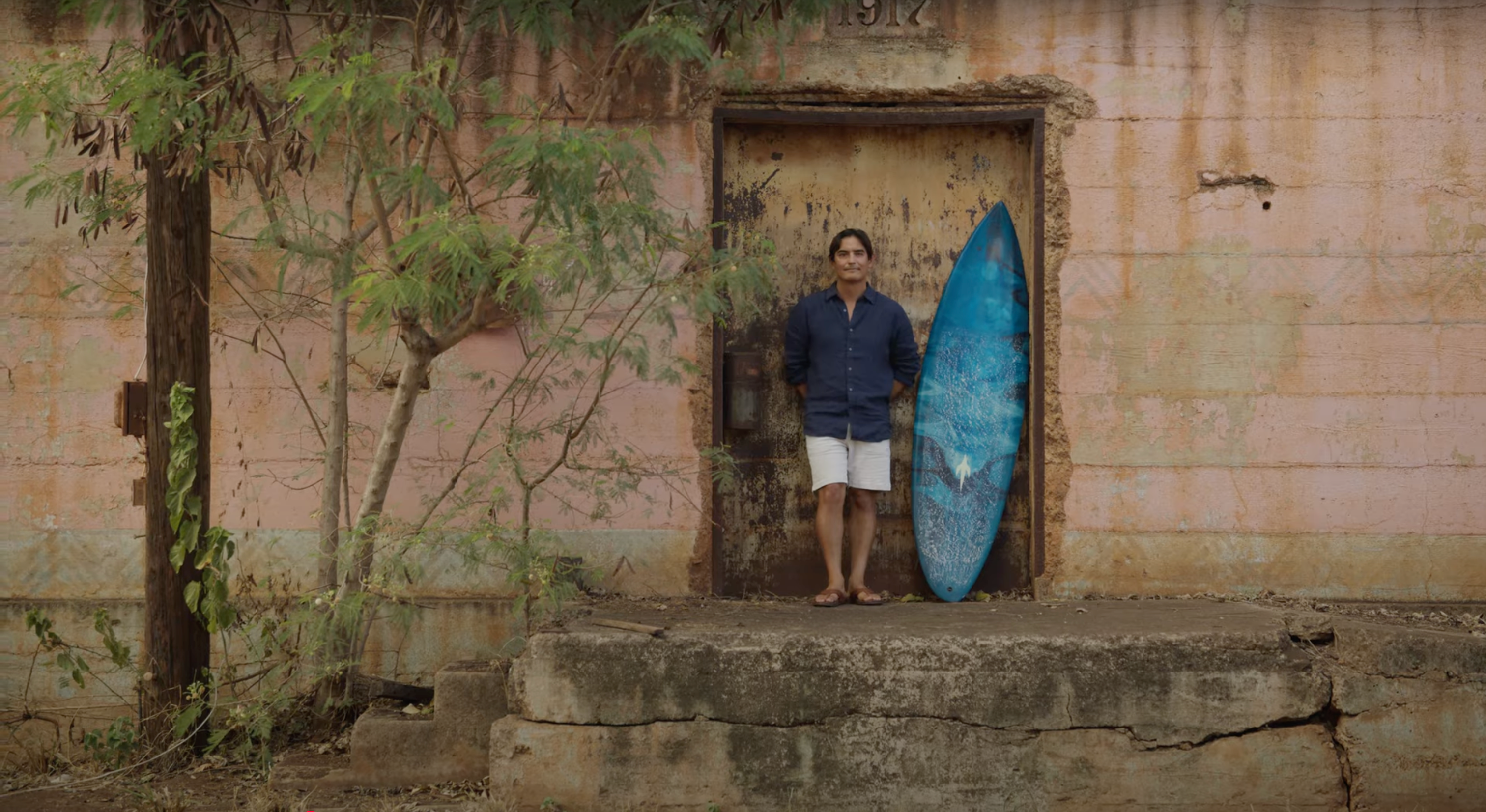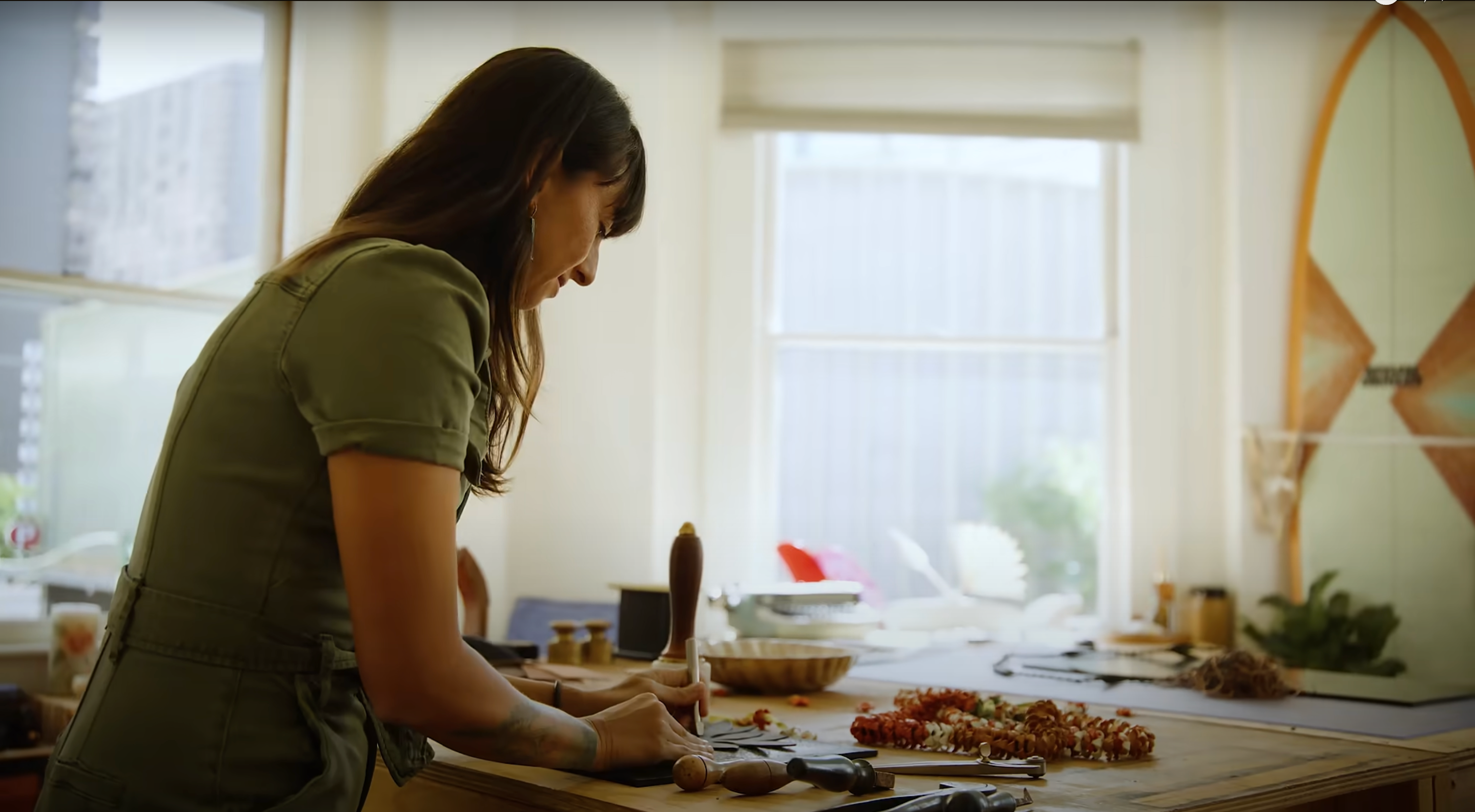Hawaiian is a fun language; it’s a cool language. It seems the older a language is, the less complicated, and Hawaiian dates back 1,800 years to 300 AD when explorers from the Marquesas first landed on the islands they called Owhyhee. But the Hawaiian language has even deeper roots than that in the Polynesian language that spread from Malaysia. Hawaiian is a terse, powerful, onomatopoetic language. When something is over, it’s “pau!” When something is good, it’s “ono!” Hawaiian phrases can be sprinkled into English — but don’t overdo it. Here are some of the most common Hawaiian terms from, OluKai to you, so we're always speaking the same language.
aloha (awe low ha)
Hello, goodbye and love. Aloha is also a feeling, a way of going about things. To act with aloha is to be caring, giving, kind.
da kine (da kine)
A multi-purpose word. “Da kine” can be a superlative, verb, adjective, adverb or noun. Da kine can mean “the best” or “that thing." Pidin English is a sparse, somewhat lazy language, so a speaker will refer to “da kine,” assuming the listener knows what he is referring to — even if he doesn’t.
haole (how lee)
Technically "without breath," but refers to any non-native Hawaiian, particularly white people from the mainland United States. "No breath" refers to non-Hawaiians who didn’t know or use the honi, a Polynesian greeting that involves touching nose-to-nose and inhaling or essentially sharing each other's breaths. Foreigners didn’t know this technique, so they were described as “without breath.” The implication is that foreigners are not only aloof and ignorant of local ways, but also have no spirit or life within.
honi (hoe nee)
A kiss; a greeting in which two people touch noses and inhale (see above).
honu (hoe new)
Turtle, specifically sea turtles, which are federally protected and thriving in Hawaiian waters. Unfortunately, tiger sharks are oblivious to federal laws, and sea turtles are like a giant bon-bon: soft on the inside, crunchy on the outside. For that reason, honu stick close to shore. Seeing a honu is considered good luck. They are sometimes very approachable.
howzit? (how zit)
How is it going? A pidgin conjunction of “how is it?” This can refer to many things: The status of the person being spoken to, the condition of the surf, the life of a party, etc. Very versatile expression.
imua (ee moo uh)
Forward! Or, go for it. I mua is what outrigger canoe racers chant to themselves as they paddle. It is what big-wave surfers say to themselves as they turn and go. It’s a positive word.
kama’aina (ka ma aye nah)
Child of the land. Refers to anyone born in Hawaii, regardless of race or creed. Being kama’aina has its advantages as some restaurants and businesses offer kama’aina discounts to local residents.
kanaka (ka nah ka)
A native Hawaiian, of Hawaiian blood.
kane (ka nay)
Man. If you see a bathroom marked “kane” and you are a guy, that is the door to use.
keiki (kay ee key)
Child, but also offspring, descendant; to have or obtain a child; to be or become a child. Hawaiians love children.
kokua (ko coo uh)
Cooperation, giving to others for their benefit. A form of aloha. Jack Johnson’s foundation is called The Kokua Foundation. Bus drivers will say, “Please kokua” when asking passengers to give up seats to the elderly.
kolohe (ko low hay)
Rascal or wild. This can refer to a person, or to the state of the ocean. Kolohe kai = wild sea.
loco moco (low ko moe ko)
A healthy Hawaiian dish, kind of like a Polynesian chicken fried steak. There are many variations, but traditional loco moco consists of white rice topped with a hamburger patty, a fried egg, and brown gravy.
mahalo (ma ha lo) -
Thank you. Be polite, say mahalo often. Manners are important.
makai (ma kye)
Toward the sea. Hawaiians will often use this as a direction. “We are makai side of Kam Highway, just down from Laniakea.”
malasada (maul a saw da)
Portuguese doughnut. Egg-sized balls of yeast dough that are deep-fried in oil and coated with granulated sugar. Like the ukulele, malasada were imported by residents of the Madeira islands who came to Hawaii to work in the sugar fields. Like the ukulele, malasada are just as sweet.
malahini (mal a hee knee)
Newcomer.
mauka (mow kah)
Toward the mountains. The opposite of makai. Hawaiian geography is pretty simple. You either live toward the mountains or toward the sea. Used in directions often.
nalu (naw lou)
Wave. He’e nalu means to ride waves. Hui nalu was the club formed by Duke Kahanamoku in 1908. Hawaiians have many words to describe different kinds of waves. Nalu pū kī means high waves. Nalu ha’i is breaking wave. Nalu miki is receding wave.
ohana (oh ha na)
Family. An important word in Hawaii, because Hawaiians are big on family. You don’t have to be blood-related to be taken into a Hawaiian ohana. If they like you, they will take you in.
ono (oh no)
Good. This is a good word for “good,” usually said with an exaggerated inflection. “Brah, those malasada, so ono!”
pau (pow)
Finished. The Hawaiian equivalent of “fin.” Another word usually said with inflection. “Brah, pau ‘dat rap music already. Make my head hurt!”
poke (po kay)
To cut crosswise into pieces. Poke is an ono fish salad that comes in many different varieties. Ahi poke, salmon poke, soy poke, octopus poke, shoyu poke, California roll poke.
pono (poe no)
Righteousness. The Hawaii state motto: "Ua Mau ke Ea o ka ʻĀina i ka Pono," or “The life of the land is perpetuated in righteousness.” But pono also means to “make right” or “do right.” Before Archie Kalepa left for his trip on the Hokulea, he wanted to be sure his family was pono: they were safe, they were secure.
pupu (poo poo)
Hawaiian hors d’oeuvers. Pupu is the word for Hawaiian snacks: before dinner, at parties, Super Bowl games. Pupus done right can be so ono: Poke, malasadas, egg roll, spare ribs, chicken wings, chicken fingers, beef teriyaki, skewered beef, fried wontons, crab rangoon, fried shrimp.
shaka (shaw kuh)
Hang loose. A hand gesture extending the thumb and the pinkie, Hawaiians use to convey a number of messages: Hello, goodbye, stay cool, see you later, etc. The way you move you wrist and waggle your hand conveys a variety of meanings. Malahini should learn the proper use of shaka, but don’t overdo it.
wahine (wa hee neigh)
Woman. Opposite of kane. The word on the other bathroom door. Guys will use this word to refer to their girlfriends: “My wahine is waiting for me. I better go.” Pleasing when spoken out loud.
